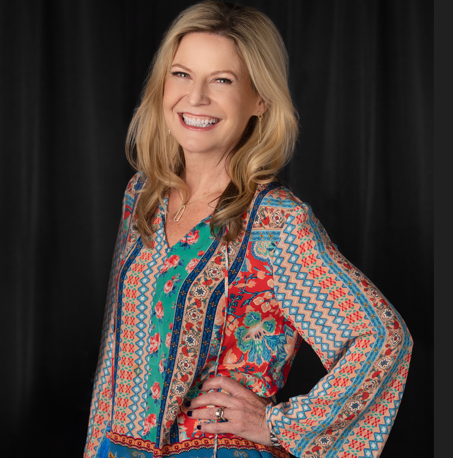Photo Credit: Nicole Thomas
Kim earned her improv comedy pedigree from Chicago’s lauded Second City Conservatory, where her teachers included Steve Carell and Stephen Colbert. Kim also studied under improv legends Del Close and Charna Halpern at Chicago’s ImprovOlympic (iO), sharing the stage with classmates Amy Poehler and Tina Fey.
Kim began her professional comedy career at The Second City Chicago, and went on to perform and write at Second City Detroit, as well as teach classes at the Second City Detroit Conservatory. She was a member of Annoyance Theater’s mainstage improv troupe Screw Puppies, made regular appearances with long-form improv groundbreakers The Free Associates, and acted in a wide range of industrial videos, voice-overs, and commercials. In addition to work as a corporate trainer, a Session Director at O’Connor Casting in Chicago, and a freelance theater director, Kim’s non-comedy background includes teaching positions at Hawthorne Scholastic Academy, Northside College Prep, Apachi Preschool, and substitute work for Chicago Public Schools.
FWM: When did you discover your love for entertainment?
I wanted to be an actress from the day I learned there was a word for it. I have my fourth-grade diary in which I had written “I want to be an actress but my mom says I can’t (she thought it was too impractical and unlikely) but that’s ok because I also want to be a teacher’. It wasn’t long before I fell in love with the place where the two intersect. I honored my parents’ wishes and completed college before I dove fully in. I’d directed several plays and productions in college and the very day after graduation I moved from California to New York City, where I didn’t know a soul, ready to finally explore this dream I’d always had. I moved into a boarding house as I studied at Stella Adler Conservatory and performed in small, off-off-Broadway productions, all the while filling an entire journal I still keep of ideas and dreams of one day running a theater training program for kids. As I had finally fully submerged myself in the pursuit of acting, I kept wishing that someone had spoken to me sooner about these ideas of how people communicate their emotions to one another, of how the very way we stand and gesticulate speaks louder than our words, of the wonderful collaboration and creativity that can emerge from working as a true ensemble.
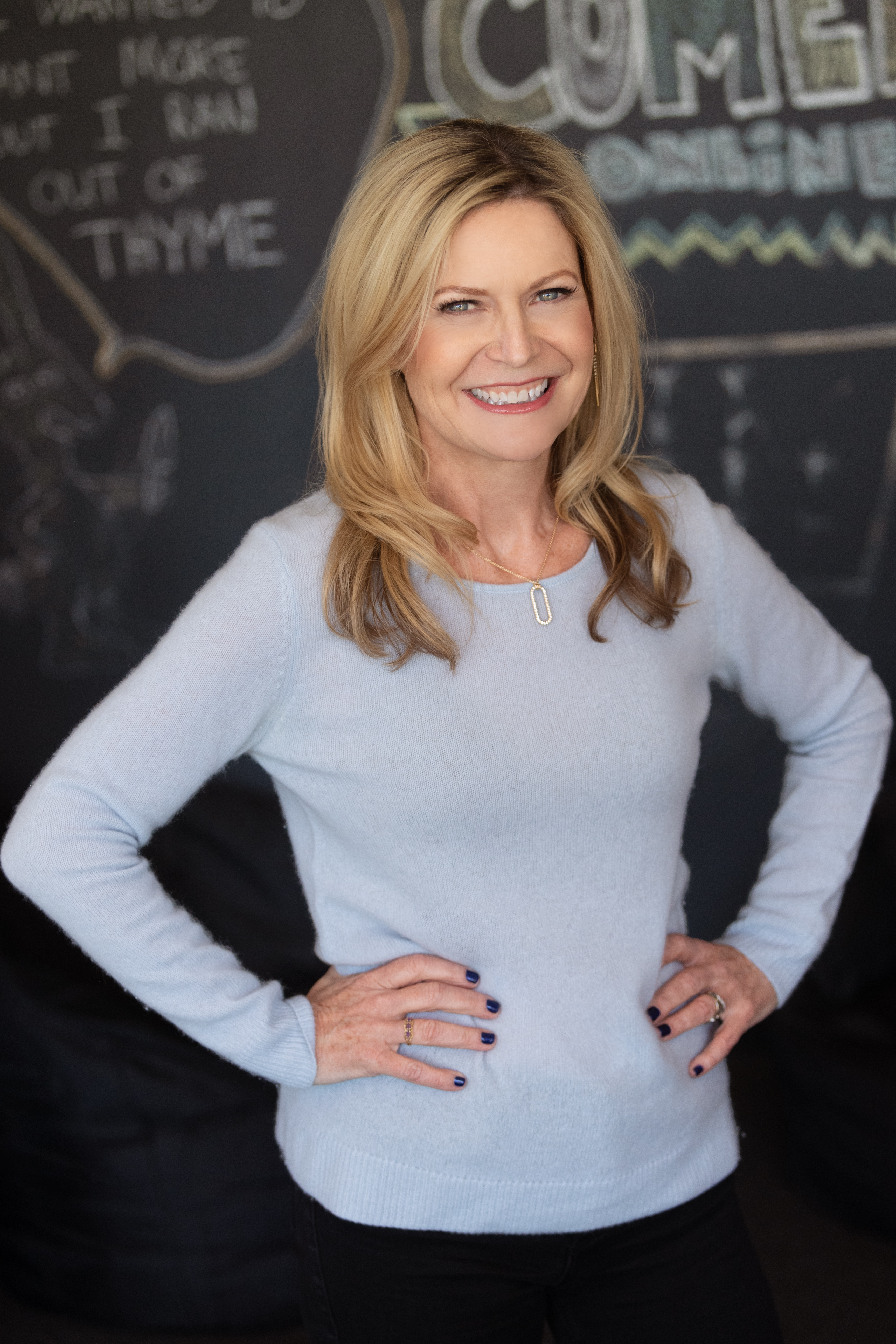
FWM: You trained and performed at The Second City where your teachers were Steve Carell and Stephen Colbert and classmates were Tina Fey and Amy Poehler. What did you learn from this experience?
When I’d decided it was time to leave NYC, I explored Chicago, also a place where I didn’t know a soul, in fact a place I’d never visited. I found my way, during that first visit, to the $5 show at Second City, a “best-of” show performed by The Second City Touring Company, and my life was forever changed. I’d never seen anything like it. There were six performers, six chairs, no sets, minimal costumes, but I was taken to so many locations, interior and exterior spaces, imagined worlds, featuring countless characters. I knew this was something I had to do and by the end of the week I’d found an apartment and scheduled my audition for their Conservatory program. Humor and laughter had always been lauded in my home, my father and I in pun-wars, family trips to the drive-in to see Peter Sellers movies, and while I was still in grade school, I’d discovered Saturday Night Live. Second City is the birthplace of SNL, the first cast including Gilda Radner, John Belushi, Dan Akroyd, Bill Murray, all Second City alum. I loved the satire of it, that the entire audience was laughing but they were also being called to introspection, they laughed at something familiar, but then it gave pause to ponder if they themselves were part of the joke, something they hadn’t realized they’d come to accept as normal, was just demonstrated for its absurdity.
My very first teacher was Steve Carell. I remember thinking improv was so much harder to do than it seemed when you were watching from the audience, and I kept thinking “I can perform Chekov and Shakespeare, why is this so difficult”? For me, it was sinking deep into the character I was creating in the moment that helped me over that hump and the realization that the goal was actually NOT to be funny, but to be genuine. If you are being genuinely human in the moment, true to the character you have created, you can trust that the funny will come because the human condition is funny enough. I also came to realize that this art form, improv, was a faster delivery system for my dream of using theater arts to teach children, not to be performers, but to be more fulfilled citizens.
We were allowed back then, as Conservatory students, to watch the mainstage show every night for free, and any night I wasn’t waiting tables, you’d find me on “the bench” stage left, watching the masters at work; Steve Carell, Stephen Colbert, Amy Sedaris….we all knew they were genius to watch, who knew who far they would go? Tina and Amy showed up later at The Improv Olympic where I also studied, they were confident from day one, so strong and so funny and it was so wonderful because at the time every cast was two women and four men, so it often pitted women against one another, or forced us to play moms and wives and we watched these two women bond so strongly, play so boldly and SHINE, often leaving the men to catch up with them. Amy Poehler in particular was such a supporter of women, she was hired just a few months before me and I remember her finding me the day I was hired and saying “I’m so glad to see they’re continuing to hire smart women”.
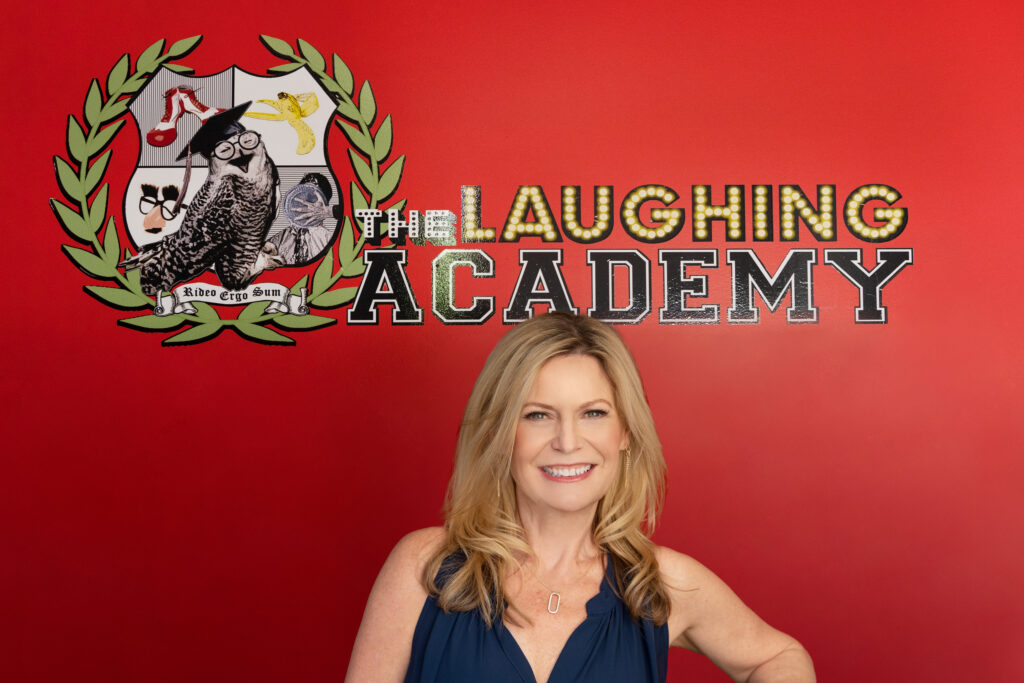
FWM: Tell us about The Laughing Academy. What makes it so special?
Our goal at The Laughing Academy is to teach the art of improv with the goal of enhancing our students’ existing lives. Many studio have a goal of helping their students rise to success and fame as performers and that’s a fine goal, but our focus is on what we call the 7 C’s: Community, Collaboration, Cooperation, Communication, Creativity, Communication and Confidence…the byproduct happens to be an 8th C Comedy. Those seven goals lead to success in any endeavor, whether you’re taking improv classes to be a more confident public speaker, or to be a better leader to your work team, or communicator with your family. Improv skills are applicable in an place where people what to work together, create together, communicate better. What we teach is Applied Improvisation, the application of the same skills that enable us to collaboratively build a scene in a moment, in front of a live audience, to other fields and interests.
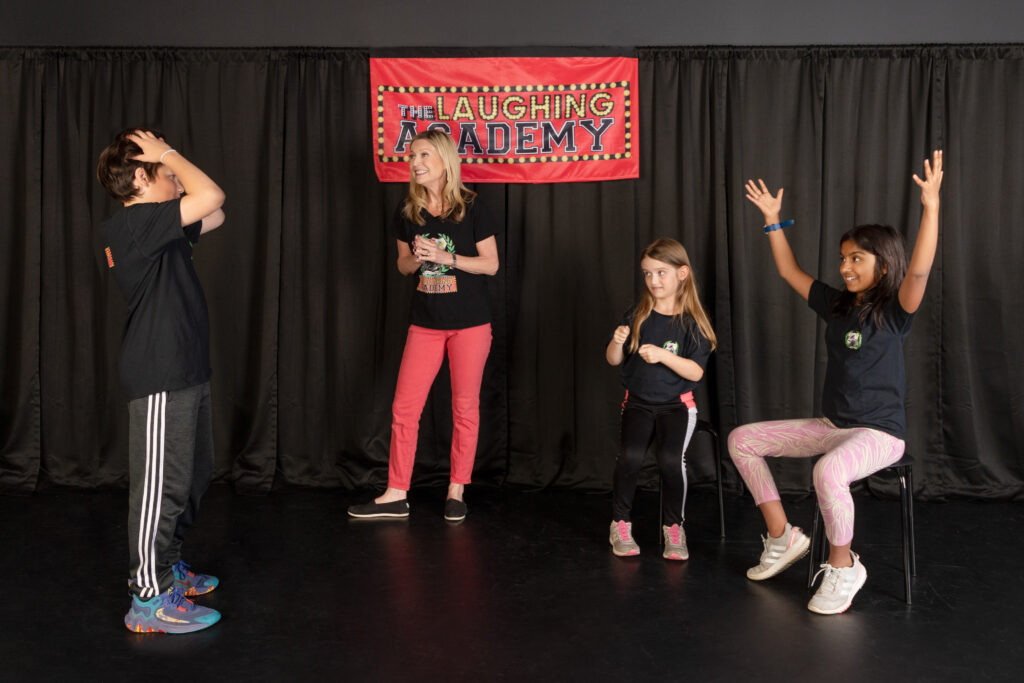
FWM: Who is it for?
We have students start with us in kindergarten and stay through high school, returning on summers home from college to take classes and to work at our summer camps. We offer classes to all ages from 5-105 and have many families where both kids and adults and even kids, adult and grandparents take our classes.
We also have shows for all ages and host other community events, the high school rock band night gets bigger every year and our regular stand up and improv shows are filled with neighbors coming together to share a laugh and forget the troubles of the world, to laugh at what scares us and diffuse it’s power through that shared laugh.
We actually do more than most people realize, also bringing our classes to schools (we originally started strictly in schools, at one point serving 450 kids a week in schools throughout the Chicago North Shore, as before and after school programs), we are hired to train at major corporations, we host birthday parties and charity events and programs at our local library.
FWM: Share your “schools out” camps for kids and your adult improv 6-week intensive workshops.
We also host mini camps on days when school is out and parents have to go to work. It’s a five-hour session primarily focused on improv activities, but also with a chance to do a little visual arts. We do much together as a whole group, then divide into age groups and learn improv games to perform for one another in a show during the final hour.
We have the most amazing adult students, all of whom take our classes for the love of the artform. We have an adult ‘house team’ who have additional rehearsals outside of class and have opportunities to perform on weekends for a general audience, our high school team often opening for them. Our adult students come to us for so many reasons, to connect and build community (most stay with us indefinitely and the bond is evident on stage and in the friendships they’ve developed), we have many retirees for whom improv has become a beloved hobby, we have some who come to strengthen their communication skills for work purposes (both presentation skills and interpersonal communication), we even have those who tell us their therapists sent them, as improv can help ease anxiety.
I’m fortunate that my ties to the improv community allow me to offer INCREDIBLE teachers, many of whom I’ve known since my first improv days, back in the early 1990’s.
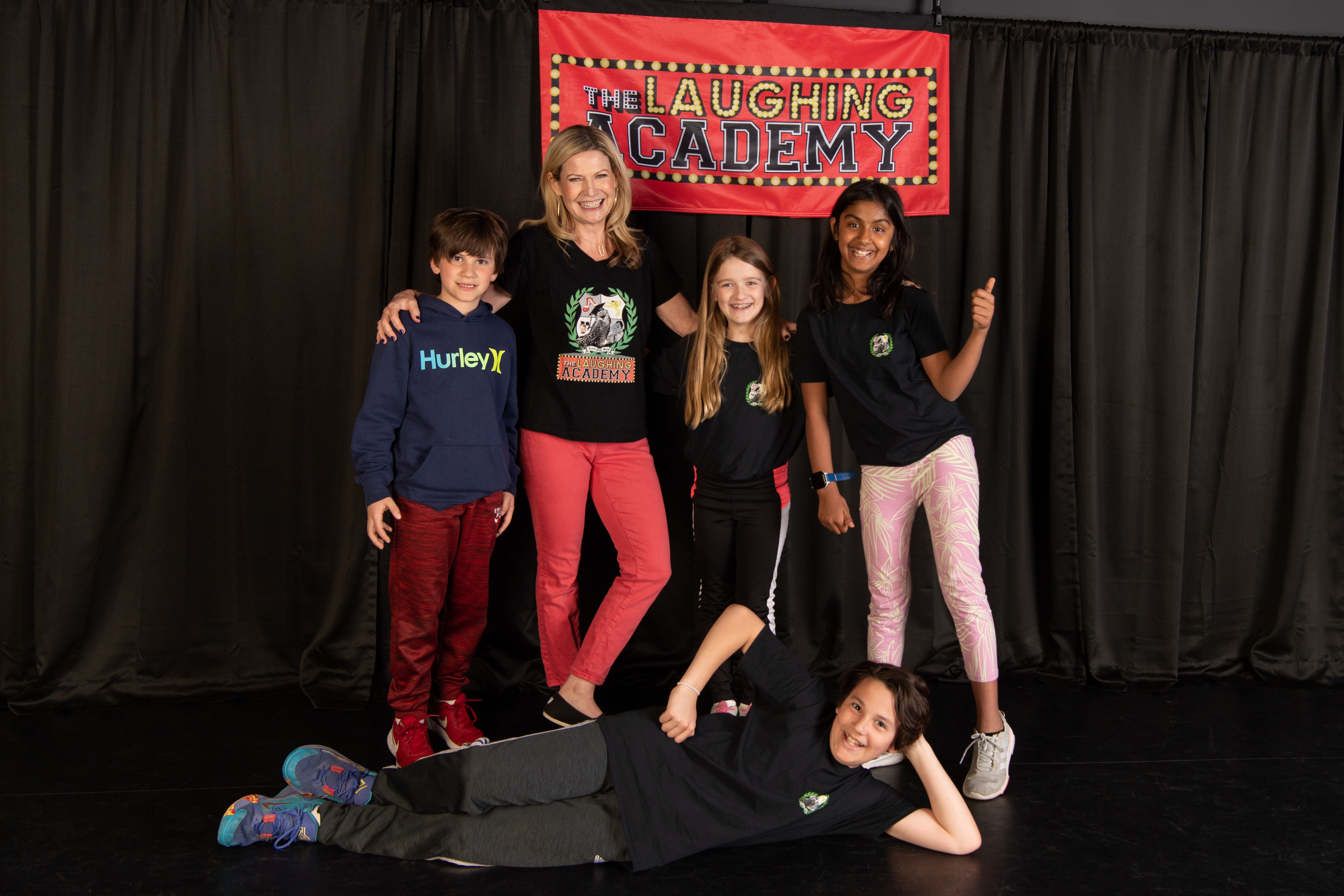
Testimonials:
“Our kids have taken improv since kindergarten. They love the class, and they’ve learned an incredible amount, including from a social and emotional learning perspective. Kim is truly fantastic with kids of all ages. I actually just took an adult improv class there myself and really enjoyed it, while also meeting some great people. We have attended the past few comedy nights and had a lot of fun as well. I would definitely recommend checking these events out if you enjoy comedy.” – Arif A.
“I’m never, ever the type of parent to brag about grades but I had to show you my son’s scorecard, because The Laughing Academy played an instrumental, behind-the-scenes role. The fact that he proactively said, ‘The Laughing Academy prepared me so well to not be scared,’ when we asked him about his six-minute, memorized presentation speaks volumes to the effectiveness and tangible impact of your work. Thank you for all that you do!” – Carlye F.
“Thanks for being such an incredible role model for our little ones! Our son is our quiet, shy guy who literally had a panic attack when he had to perform in his school’s winter program a couple of years ago… And now he asks us to watch his “skits” and loves coming to your classes! It truly changed his world, and ours! Much to be grateful for!” – Alisa C.
“My son had struggled to read body language and be able to jump in to play with his peers. At times, he would get overwhelmed and become very anxious. Through wonderful support, he has grown so much and overcome many of his challenges. His involvement with The Laughing Academy has been a wonderful part of his growth. It is such a positive, fun and safe environment to explore aspects of himself and his peers that were uncomfortable and bewildering to him. We are very grateful for your class! Thank you so much for what you do!” – Nicole N.
“I was a little self-conscious at first, but Kim’s warm-ups got me loosened up and ready to play. I like how she directed the activity while still bringing out our silly and creative sides. And the human orchestra game was positively cathartic” – Pamela S.
“I absolutely loved Adult Improv class with Kim! It was fun, inspiring, and pushed me just far enough past my comfort zone to feel challenged in the best way! If you’re nervous, please don’t be! It was the most welcoming and friendly environment to allow yourself a bit of creative freedom! You’ll enjoy it and feel quite proud of yourself after!” – Nicole F.
FWM: What has been your greatest reward as the founder of The Laughing Academy?
Truly, every day is equally rewarding as it is challenging. I’m absolutely living my dream, and it comes with a lot of work, but there is nothing I would rather do. Beyond what they do on my stage, and what they do on my stage has a constant “WOW factor” that even their own parents can’t, and children remark after every show that they didn’t know what their child/parent was capable of. It’s more-so watching my students employ what they’ve learned in all the other things they do that nearly drives me to tears; I was invited to a student’s bat mitzvah, whom I’d taught since kindergarten, and watching her eloquently deliver a well-conceived speech, or watching a formerly shy student perform like a rock star with his rock band, feeling safe and free to express himself on stage, or hearing a student deliver his 8th grade graduation speech and mention how improv improved his life, and hearing him truly understand the improv rule of “yes, and….” when he said “it’s not just saying ‘yes’ to opportunities, it’s the ‘and’ which is what you add, what you bring to the activity” and watching a high schooler I’ve taught since first grade help welcome a brand new student, and make sure he felt included and part of the ensemble. Those are my rewards.

